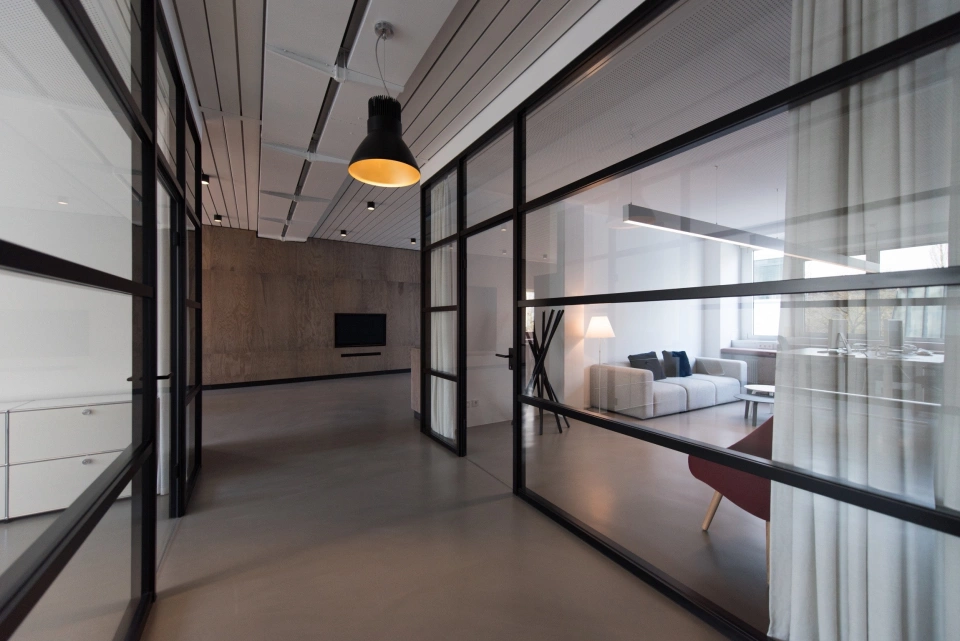Renewing or extending a commercial lease.
Published on Tuesday 11 June, 2019 by Andrew Mitchard
Depending on the terms of the lease, and what terms have been negotiated with the landlord, commercial leases will usually contain a right for a tenant to renew their lease for a further term. Keep reading to find out more about commercial lease extensions and commercial lease renewal options.
It’s important for a tenant to be aware of how their commercial lease is renewed (or extended) and what their rights are under the lease and the Retail and Commercial Leases Act 1995. Most commercial leases in South Australia are regulated by the Act.
Below are some common questions that we get asked about commercial lease extensions and commercial lease renewals. If you have a question that’s not answered below or just want to have a confidential chat with our team, we’re always here to help.
Send us a message, or give us a call on (08) 8231 1110

What is a right of renewal in a commercial lease?
A right of renewal in a commercial lease gives tenants the option to extend a lease for a further term. There can be more than one further term.
Can a landlord refuse to renew a commercial lease?
Landlords do not have to give you a right of renewal. Commercial leases don’t entitle you to a renewal of the lease if your lease agreement doesn’t contain a right of renewal, except where you have negotiated a renewal (or alternatively a new lease) with your landlord or you have rights under the Retail and Commercial Leases Act 1995.
How is a right of renewal exercised?
Not sure how to negotiate a commercial lease renewal or extension? Your commercial lease should set out how and when you’re able to exercise your right to renew (or extend).
Usually you must give a written request or notice to your landlord to exercise your option to renew your commercial lease (or extend it). This written request or notice must be given within a strict time frame set out in the lease. For example, the timeframe may be between six and nine months before the end of the lease. It is critical that you keep a record of this timeframe as the consequences can be serious if you fail to request a commercial lease extension or renewal within the period.
The lease may set out how the written request or notice is to be given. A notice should refer to the landlord, the tenant, the lease and the premises, clearly state that their right of renewal is being exercised, and be signed by the tenant.
Once you’ve notified your landlord of your intention to renew, the lease will be extended for the further term and the landlord will prepare a formal extension of lease document.
The formal extension of lease will contain terms documenting the renewal, such as the rent for the further term. The rent will usually be reviewed to the current market rental value by agreement between the parties or failing agreement, then by an independent valuer. The parties may negotiate and agree to other variations to the terms of the extension of lease, including any additional rights of renewal.
Exercising your option to renew a commercial lease? Letters to give notice need to be written according to your lease agreement. Talk to us about how we can assist you in reviewing your lease to determine your rights of renewal and preparing a written commercial lease renewal (or extension) notice to your landlord.
What happens if I don’t renew my lease?
There are potentially serious consequences if you don’t exercise your right of renewal in accordance with the procedure set out in the lease.
Depending on the terms of your lease, if you continue to occupy the premises after the end of the lease term and you haven’t exercised your right of renewal in accordance with the lease (for example, you have not exercised it between three and six months before the end of the lease) you’ll be considered a periodic tenant.
The tenancy will usually be on the same terms and conditions of the lease but subject to an increase of the rent payable (such as a fixed increase of a percentage amount, CPI or by working out the market rent for the premises at the time of renewal). The commercial periodic tenancy notice period generally requires one month’s notice, and may be terminated by either party.
A failure to renew can lead to a situation where:
The landlord decides they require vacant possession and can issue to you a notice to vacate the premises (for example, on 30 days’ notice); or
The landlord may negotiate the terms of a new lease on terms that may be unfavourable to you, such as a new rental amount.
If you haven’t complied with the renewal procedure you may still have success negotiating a commercial lease renewal with your landlord.
What rights do I have under the Retail and Commercial Leases Act?
If the Retail and Commercial Leases Act 1995 applies to your lease, you’ll be entitled to a minimum five year term. This term is worked out on the assumption that a right of renewal will in fact be exercised: For example:
If the initial lease term is one year, with two rights of renewal of two years each, the total term of the lease will be five years.
If the lease term is three years, with no rights of renewal, then this wouldn’t comply with the Act and you’d be entitled to have the term extended by two years to bring the total term of the lease to five years.
There are a number of exceptions to this, and the minimum five year term can be waived through a certified exclusionary clause (signed by a lawyer who doesn’t act for the landlord).
If your lease forms part of a retail shopping centre, you may have rights of renewal of the commercial lease under the provisions of the Act dealing with preferential rights, which allow you to remain in the premises if the landlord wishes to re-let.
A retail shopping centre is defined as a group of premises whereby at least five are retail shops, that they are all owned by the same person, are located in the same building or other buildings which are adjoined or separated by common areas and that the area is generally promoted as a shopping centre, mall, court or arcade. These are complex provisions and would require further advice by us.
Our commercial property lawyers have extensive experience acting for and advising tenants in all aspects of commercial and retail leases. With offices in Adelaide and across regional South Australia, we’re here to help with commercial lease extensions for all types of commercial properties. To get started, contact Andrew Mitchard on 8231 1110 or send us a message.
The content of this article is intended to provide a general guide to the subject matter. Specialist advice should be sought about your specific circumstances.

Author
Andrew Mitchard
Managing director
Found this helpful? Share it!
Read our news and ideas by Practice Area
- Aboriginal land rights
- Agricultural law
- Asbestos claims
- Car accident claims
- Commercial and property law
- Contested wills and estates
- Conveyancing
- Criminal law
- Defamation
- Employment law
- Estates
- Family law
- Injury claims
- International law
- Litigation and dispute resolution
- Public liability
- Renewable energy law
- Super TPD
- Wills and succession planning
- Workers' compensation
Related posts...
Your guide to workers’ compensation claims
If you or a loved one has been injured at work, it can be challenging to navigate a workers’ compensation claim – especially during recovery. Keep reading to learn about your legal rights and entitlements.